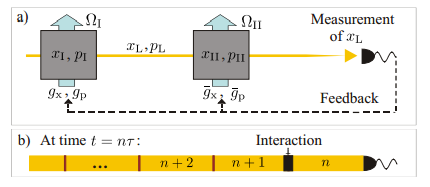- A Proto-Liver Is Grown from Stem Cells
A mixture of three cell types self-assembles into a liver bud that can be seen with the naked eye.
In work that will raise hope that organs could be repaired or even grown from scratch using a patient’s own tissue as the raw material, Japanese researchers have created functioning liver tissue from stem cells and successfully transplanted them into mice.
- Google Glass Teaches Sergey Brin the Value of SnapChat
Google cofounder Sergey Brin says the wearable computer Google Glass has taught him the value of communicating using only photos
Can it be long before Google adds photo-based messaging to its wearable computer Google Glass? The New York Times reported this week that after recently snapping a photo of his food using Glass, Google cofounder Sergey Brin began to think about the value of sending messages that comprise only of photos:
- The Incredible Dark Matter Mystery: Why Astronomers Say it is Missing in Action
Astrophysicists believe that our galaxy must be filled with more dark matter than ordinary matter. Now astronomers say they can find no evidence of dark matter’s gravitational influence on the planets. What gives?

- Silicon Valley Can’t Be Copied
For 50 years, the experts have tried to figure out what makes Silicon Valley tick. The answer is people.
By 1960, Silicon Valley had already captured the attention of the world as a teeming technology center. It had spawned the microwave electronics industry and set a pattern for industry-academic partnerships. French president Charles de Gaulle paid a visit and marveled at its sprawling research parks set amid farms and orchards south of San Francisco.
- Flexible Glass Could Make Tablets Lighter and Solar Power Cheaper
NREL shows that Corning’s Willow glass can be used to make flexible solar cells that could be installed in place of roofing shingles.
Researchers at the U.S. government’s National Renewable Energy Laboratory have built flexible solar cells using a thin and pliable kind of glass from Corning, the company that makes the glass that covers iPhone screens. The new solar cells could make rooftop solar power far cheaper.
- From Kickstarter to Best Buy: A Smart Watch's Journey
The Pebble smart watch has risen from being reliant on crowd-funding to appearing on shelves at a mass-market retailer.
- 2013 Global Innovation Index
The 2013 Global Innovation Index looks very similar to last year’s, but its ranking of the most efficient innovators features several new names.
What makes a nation innovative? A series of factors that probably do not change much from year to year.
- Intel’s Justin Rattner on New Laser Chip Business
Justin Rattner, who just stepped down as Intel CTO, discusses mobile computing and the future of Moore’s Law.
Intel came to dominate computing by consistently beating others at packing transistors ever more densely onto chips for desktop computers and servers. Today, even as the PC market shrinks and the giant company struggles to convince phone and tablet makers to use its chips, Intel spends $10.1 billion on research annually. Justin Rattner, who has been the company’s CTO, recently met with Tom Simonite, MIT Technology Review’s senior IT editor, to argue that this investment will help Intel’s mobile chips overtake those of its competitors and create new businesses. Last Thursday, Rattner announced he was stepping down as Intel’s CTO to take personal leave. He plans to return to the company in a different position.
- Physicists Discover the Secret of Quantum Remote Control
The ability to control one quantum particle by manipulating another somewhere else sounds like the stuff of science fiction. Now physicists say they know how to do it

Digest powered by RSS Digest

